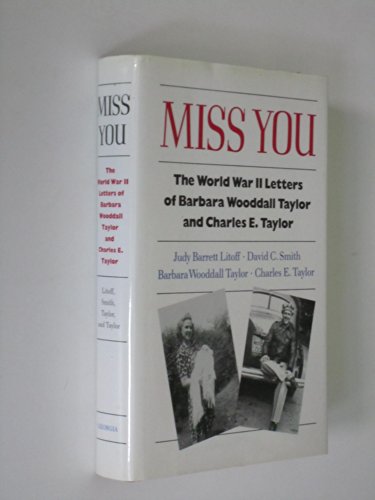
Miss You
by Barbara Wooddall Taylor
"The World War II Letters of Barbara Wooddall Taylor and Charles E. Taylor"
Popularity
4 / 5
* A book's popularity is determined by how it compares to all other books on this website.
Where to buy?
Buy from Amazon* If you buy this book through the link above, we may receive a small commission at no extra cost to you.
Miss You by Barbara Wooddall Taylor
Details
War:
World War II
Perspective:
Civilian
True Story:
Yes
Biography:
Yes
Region:
North America
Page Count:
358
Published Date:
1990
ISBN13:
9780820311456
Description
Brief Summary
Miss You by Barbara Wooddall Taylor is a poignant novel that captures the intimate exchange of letters between an American officer and his wife during World War II. Set against the backdrop of a tumultuous period in history, the correspondence reveals the personal experiences, struggles, and emotions of a couple trying to maintain their connection despite the physical and emotional distance imposed by the war. Through their letters, readers gain insight into the era's challenges and the enduring bonds of love and commitment.
Main Themes and Topics
At its heart, Miss You delves into themes of love, separation, and resilience. The letters serve as a testament to the power of communication and the written word during times of crisis. The novel explores how the couple navigates the challenges of wartime, reflecting on themes of longing, hope, and the human capacity for endurance in the face of adversity. It also touches on the historical realities of World War II, providing a personal lens through which readers can understand the broader impact of the conflict.
Writing Style and Tone
Barbara Wooddall Taylor employs a succinct and evocative writing style, capturing the authentic voices of the characters through their letters. The tone is intimate and reflective, drawing readers into the personal world of the couple. Taylor's ability to convey deep emotion and complex relationships through written correspondence is commendable, allowing readers to fully immerse themselves in the characters' lives and experiences. The narrative's epistolary format lends an air of authenticity, preserving the immediacy and rawness of the characters' emotions.









